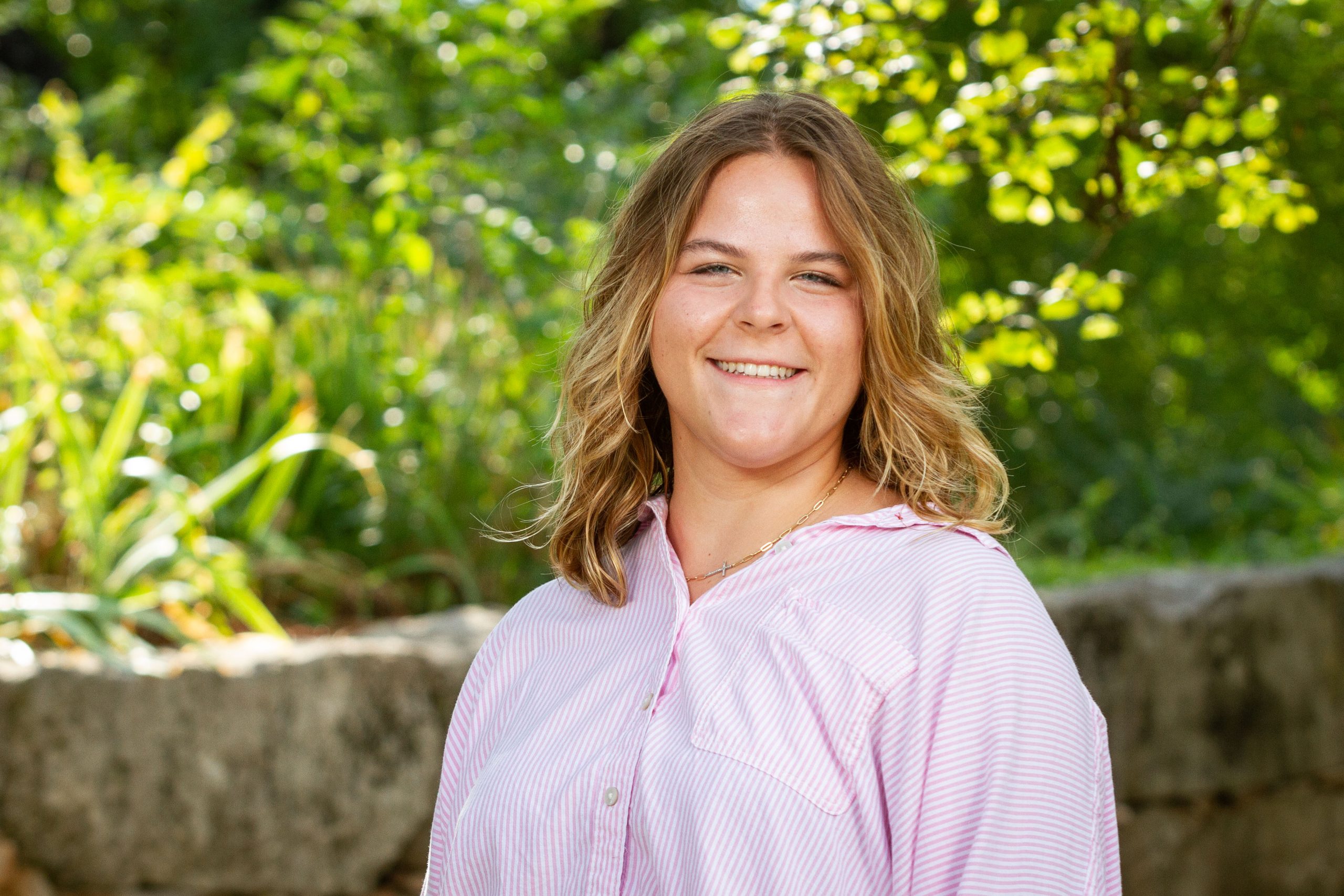Gatton Academy Selects Class of 2012, Expands Total Enrollment to 128 Students
March 31, 2010 | Admissions, News, WKU | No Comments

The Carol Martin Gatton Academy of Mathematics and Science in Kentucky at Western Kentucky University has selected 61 students for its Class of 2012.
The students in this year’s class span 38 counties from across the Commonwealth. This gifted group of high school sophomores brings with them to the Gatton Academy an average ACT score almost 10 points higher than the statewide average for graduating seniors.
Last fall, 275 students began the admissions process with 125 students qualifying for review. Students were reviewed based on ACT/SAT scores, high school grades, awards, extracurricular activities, responses to essay questions, and letters of recommendation. Earlier this month, 85 candidates were invited for interviews with Academy staff members and representatives from across Kentucky. In the end, 61 dynamic applicants emerged from the review process.
When faced with the talented pool of applicants, Tim Gott, the Academy’s director, knew the program needed to find a way to meet the needs of a greater number of students. Consulting with Academy staff members, a decision was made to expand the student body to 128 students beginning in fall 2010, an increase of nearly 7 percent.
Gott expects these students to continue the level of academic and personal engagement Academy students have demonstrated over the last three years.
“As we begin planning for our fourth year at the Gatton Academy, I am amazed and honored to work with such outstanding students,” Gott said. “The incoming Class of 2012 once again demonstrates the incredible caliber of students from across the Commonwealth. The depth of academic strength and emerging leadership among this group reveals that the state is making a major contribution toward meeting the demand for more professionals in the STEM fields.”
The selected students scored an average composite of 29.2 on the ACT and 29.5 on the math portion of the exam. The highest possible score is 36. The 2009 state average ACT score for graduating Kentucky high school seniors was a composite of 19.4.
“The members of the Gatton Academy’s Class of 2012 have demonstrated they are ready for a greater academic challenge,” said Corey Alderdice, the Academy assistant director for admissions and public relations. “They will bring to WKU a variety of passions and abilities. Our goal will be to sharpen those skills as they grow and mature both academically and socially. Their experiences will be the flagstone in their pursuit to lead Kentucky in the 21st century.”
The incoming class includes students from the following counties: Boone, Bourbon, Boyd, Boyle, Breathitt, Bullitt, Calloway, Campbell, Carroll, Carter, Christian, Clay, Clinton, Daviess, Graves, Hancock, Hardin, Henderson, Henry, Jefferson, Jessamine, Kenton, Larue, Laurel, Logan, Madison, Mercer, Montgomery, Nelson, Oldham, Pulaski, Rockcastle, Russell, Simpson, Todd, Warren, Wayne and Whitley.

This year, eight counties had students admitted to the Gatton Academy for the first time: Breathitt, Carroll, Clay, Clinton, Montgomery, Rockcastle, Russell and Todd.
To date, the Gatton Academy has admitted students from 95 of Kentucky’s 120 counties.
The goals of the Gatton Academy are to enable Kentucky’s exceptional young scientists and mathematicians to learn in an environment which offers advanced educational opportunities, preparing them for leadership roles in Kentucky. Moreover, the Gatton Academy assists in preparing Kentucky to compete in a knowledge-based economy by increasing the number of scientists and engineers who live and work in the state.
Students will finish their junior and senior years of high school living in Schneider Hall and taking courses offered by WKU. At the end of their two-year course of study, they will graduate from high school and have earned at least 60 college credit hours.
The Academy provides a rich living/learning environment designed specifically for academically talented adolescent students that features clubs, organizations and community service. Additionally students are able to participate in advanced research with WKU faculty members. Research conducted during students’ time at the Gatton Academy has been honored in the nationally competitive Siemens Competition, Intel Science Talent Search, Barry M. Goldwater Scholarship and Excellence in Education Program, and the Department of Defense Science, Math, and Research for Transformation (SMART) Scholarship Program.
The Gatton Academy is Kentucky’s only state-supported, residential program for high school students with interests in advanced science and math careers and one of sixteen such programs in the nation. In 2009, Newsweek magazine honored the Academy as one of 16 “Public Elite” American high schools.
More information about the Gatton Academy is available online at http://www.wku.edu/academy/.
Students selected for the Gatton Academy Class of 2012
From Boone County: John Ferguson, a student at Cooper High School whose parents are Martha Ferguson and Philip Ferguson; Samantha Hawtrey, a student at Ryle High School whose parents are Claire Hawtrey and Thomas Hawtrey; Lori Lovell, a student at Boone County High School whose parents are Sarah Lovell and Joseph Lovell; and Daniel Dilger, a student at Ryle High School whose parents are Tonya Dilger and Johannes Dilger.
From Bourbon County: Brandon Farmer, a student at Bourbon County High School whose parents are Lisa Farmer and Charles Farmer.
From Boyd County: Curtlyn Kramer, a student at Paul G. Blazer High School whose parents are Betty Rice-Kramer and Curtis Kramer; and Jessica Farrell, a student at Boyd County High School whose parents are Annette Farrell and David Farrell.
From Boyle County: Lukas Missik, a student at Boyle County High School whose parents are Christine Missik and John Missik.
From Breathitt County: Hunter Noble, a student at Breathitt County High School whose parents are Cindy Noble and Gregory Noble.
From Bullitt County: Layne Webb, a student at Bullitt East High School whose parents are Judith Webb and Kevin Webb; Alex Gutierrez, a student at Bullitt East High School whose parents are Bobbi Gutierrez and Leroy Gutierrez; and Anthony Gutierrez, a student at Bullitt East High School whose parents are Bobbi Gutierrez and Leroy Gutierrez.
From Calloway County: Hannah Miller, a student at Murray High School whose parents are Diane Miller and Jeff Miller; and Hannalore Clause, a student at Calloway County High School whose parents are Joyce Clause and Robert Clause.
From Campbell County: Lydia Clark, a student at Campbell County High School whose parents are Dawn Clark and Troy Clark.
From Carroll County: Luke Yap, a student at Carroll County High School whose parents are Tracey Yap and Winston Yap.
From Carter County: Jaymi Porter, a student at West Carter High School whose parent is Jay Porter.
From Christian County: Breck Turner, a student at Hopkinsville High School whose parents are Wendy Turner and William Turner; and Amelia Winters, a student at Christian County High School whose parents are Patrice Johnson-Winters and Tommy Winters.
From Clay County: Caroline Stivers, a student at Clay County High School whose parents are Nancy Stivers and Robert Stivers.
From Clinton County: Ellis Shelley; a student at Clinton County High School whose parent is Charlotte Shelley Bernard.
From Daviess County: William Bickett, a student at Owensboro Catholic High School whose parents are Karen Bickett and Gary Bickett; Leah Wilson, a student at Daviess County High School whose parents are Jean Wilson and Jeff Wilson; and Gabrielle Canant, a student at Daviess County High School whose parents are Paula Canant and Kenneth Canant.
From Graves County: Andrea Eastes, a student at Paducah-Tilghman High School whose parents are Chrissy Eastes and Jeff Eastes; and Daylynn Allison, a student from Graves County High School whose parents are Carrie Burnett and Douglas Allison.
From Hancock County: Jon Warren, a student at Hancock County High School whose parent is DiAnn Warren.
From Hardin County: Matthew Mattingly, a student from Elizabethtown High School whose parents are Jennifer Mattingly and James Mattingly; Samantha McKean, a student at Central Hardin High School whose parents are Julie McKean and John McKean; Landon Wilcox, a student from Elizabethtown High School whose parents are Angela Wilcox and Dale Wilcox; and Cameron Kispert, a student from John Hardin High School whose parents are Jeanine and Kenneth Kispert.
From Henderson County: Christian Jolly, a student from Henderson County High School whose parents are Michelle Jolly and Scott Jolly.
From Henry County: Rachel Metcalfe, a student from Eminence High School whose parents are Tina Stambaugh and Steve Metcalfe.
From Jefferson County: Taylor Leet, a student from Louisville Male High School whose parents are Tila Leet and Allen Leet.
From Jessamine County: Jesse Matherly, a student from West Jessamine High School whose parents are Cindy Matherly and Steve Matherly.
From Kenton County: Logan Eckler, a student from Ludlow High School whose parent is Donna Eckler.
From Larue County: Mary Greenwell, a student from Central Hardin High School whose parents are Neda Greenwell and Paul Greenwell.
From Laurel County: Alexandra DeCarlo, a student from South Laurel High School whose parents are Karen DeCarlo and Anthony DeCarlo.
From Logan County: Victoria Allen, a student from Logan County High School whose parent is Jennifer Allen.
From Madison County: Laura Claytor, a student from Berea Community High School whose parents are Kim Claytor and Joe Claytor.
From Mercer County: Tennesse Joyce, a student from Mercer County High School whose parents are Chantal Joyce and Tim Joyce.
From Montgomery County: Nicholas Zolman, a student from Montgomery County High School whose parents are Katherine Zolman and Mitchell Zolman.
From Nelson County: Rebecca Brown, a student at Nelson County High School whose parents are Susan Brown and Brian Brown; Charlotte Humes, a student at Nelson County High School whose parents are Suzanne Coombs and Louis Humes; and Barbara Still, a student at Nelson County High School whose parent is Arneida Harrise.
From Oldham County: Paul Fleischmann, a student at South Oldham High School whose parents are Maria Fleischmann and Randall Fleischmann.
From Pulaski County: Benjamin Rice, a student at Somerset Christian School whose parents are Jessie Rice and Richard Rice; Melanie Hurst, a student at Southwestern High School whose parents are Treba Hurst and David Hurst; and Aaron Stolze, a student Southwestern High School whose parents are Lisa Stolze and Jason Stolze.
From Rockcastle County: Caroline Green, a student at Rockcastle County High School whose parent is Christie Green.
From Russell County: William Brown, a student at Russell County High School whose parents are Karen Brown and James Brown.
From Simpson County: David Sekora, a student at Franklin-Simpson High School whose parents are Marschelle Sekora and Peter Sekora; and Joseph Tutor, a student at Franklin-Simpson High School whose parents are Tiffany Wilson and Scott Wilson.
From Todd County: Annie Wheeler, a student at Todd County Central High School whose parents are Makka Wheeler and Gerald Wheeler, III.
From Warren County: Michael Crocker, a student at Bowling Green High School whose parents are Patricia Crocker and Scott Crocker; Austin Taing, a student at Greenwood High School whose parent is Yong Taing; Markus Ernst, a student at Bowling Green High School whose parents are Uta Ziegler and Claus Ernst; Jordan Currie, a student at Warren Central High School whose parents are Tamara O’Nan and Christopher Currie; and Holly Morris, a student at Bowling Green High School whose parents are Cindy Morris and Tim Morris.
From Wayne County: Victoria Pulsifer, a student at Monticello High School whose parent is Kathleen Martin.
From Whitley County: Emily Croley, a student at Williamsburg High School whose parent is Debra Croley.
More WKU news is available at www.wku.edu and at http://wkunews.wordpress.com/. If you’d like to receive WKU news via e-mail, send a message to WKUNews@wku.edu.
For information, contact Corey Alderdice at (270) 745-2971








